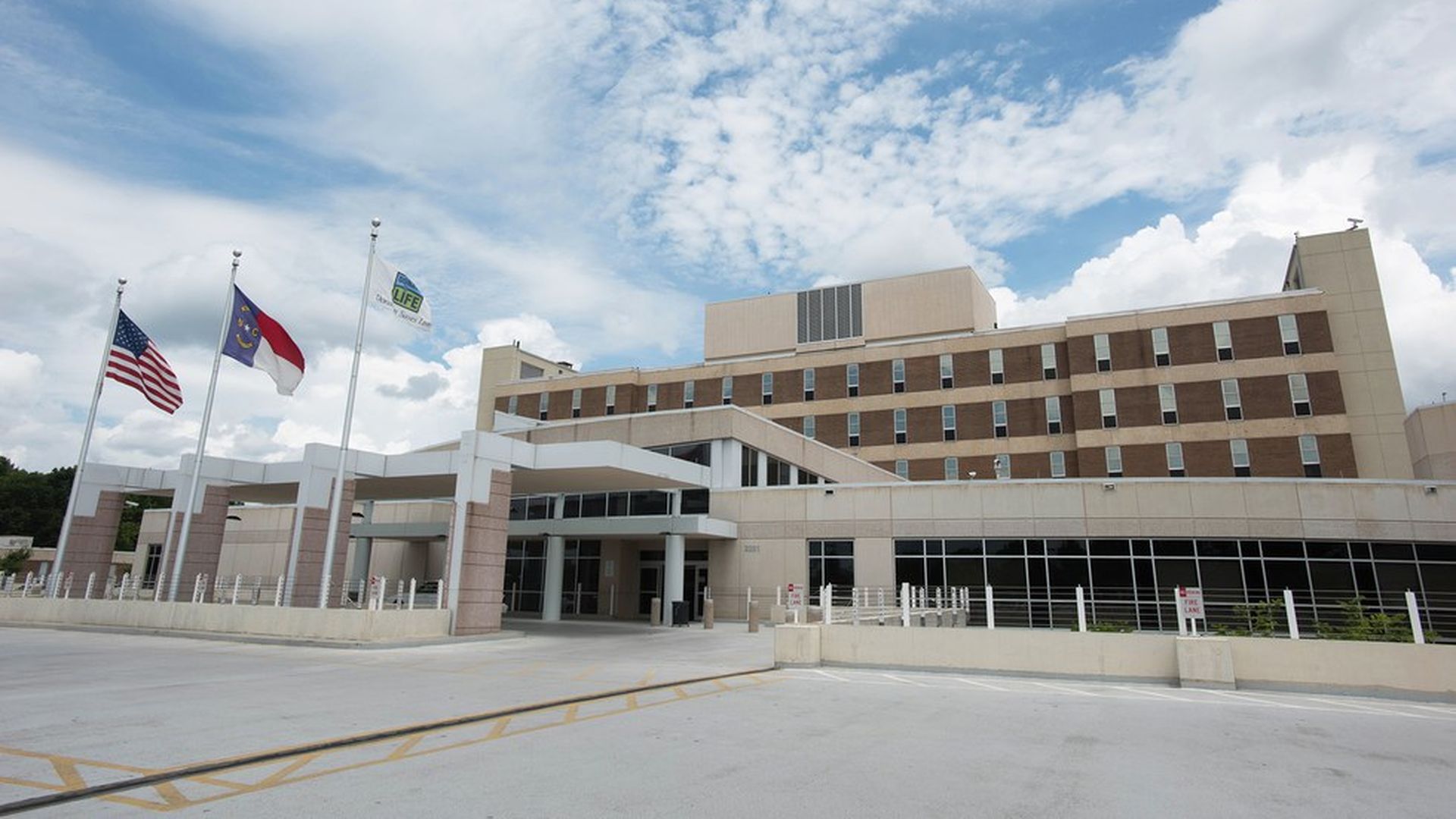The value of hospitals' tax exemptions
Add Axios as your preferred source to
see more of our stories on Google.

Not-for-profit hospitals say their tax exemptions are justified. Photo: Carolinas HealthCare
Sen. Chuck Grassley recently had sharp words for not-for-profit hospitals, following a Politico investigation that looked at how hospitals have cut back on charity care since the Affordable Care Act went into effect but still reap major financial benefits by not paying federal, state and local taxes.
The latest: The American Hospital Association released a report last week that said the benefits not-for-profit hospitals provide to their local communities far outweigh foregone federal tax revenue. But experts say the AHA's report has flaws and omissions that exaggerate hospitals' community roles and understate the power of their tax exemptions.
The AHA's report says hospitals provided $67.4 billion worth of community benefits in 2013 — including free charity care for their poorest patients, underpayments from Medicare and Medicaid, and "community building activities." The government missed out on collecting $6 billion that same year in federal taxes from tax-exempt hospitals, the report said.
There are some holes in the report:
- The AHA did not account for the giant tax break hospitals get on their property, "which is just a joke," said Craig Garthwaite, a health economist at Northwestern University. "Exclusion of property taxes would be a very major problem," added Gary Young, a health policy professor at Northeastern University who has studied tax exemptions for not-for-profit hospitals.
- Calculating shortfalls from Medicare as a community benefit also raises a red flag. For-profit hospitals that pay taxes treat Medicare patients. The IRS doesn't acknowledge Medicare shortfalls as a community benefit. And research shows hospitals often lose money from Medicare because of their high fixed costs and inefficiency, not because payments are too low. "That's really just trying to get that (community benefits) number as high as possible," Garthwaite said.
- The AHA used 2013 data for its report. The outdated data don't reflect how the ACA's coverage expansions in 2014 eased some financial burdens on hospitals, said Garthwaite, who has studied how the ACA has reduced hospitals' uncompensated care.
AHA's response: Mindy Hatton, the American Hospital Association's top lawyer, responded with a statement to Axios. The report did not include property tax values, she said, because the analysis only covered federal exemptions, which "Congress has jurisdiction over." Hatton also said 2013 "is the most recent year for which tax information is available." When it was mentioned there are much more recent tax forms available at GuideStar, Hatton said her group collects data directly from hospitals "rather than rely on outside sources."
